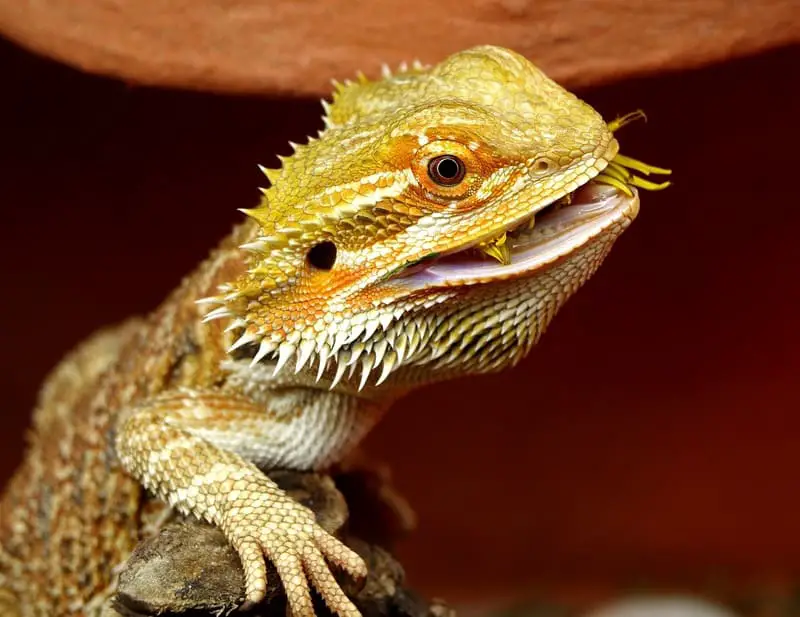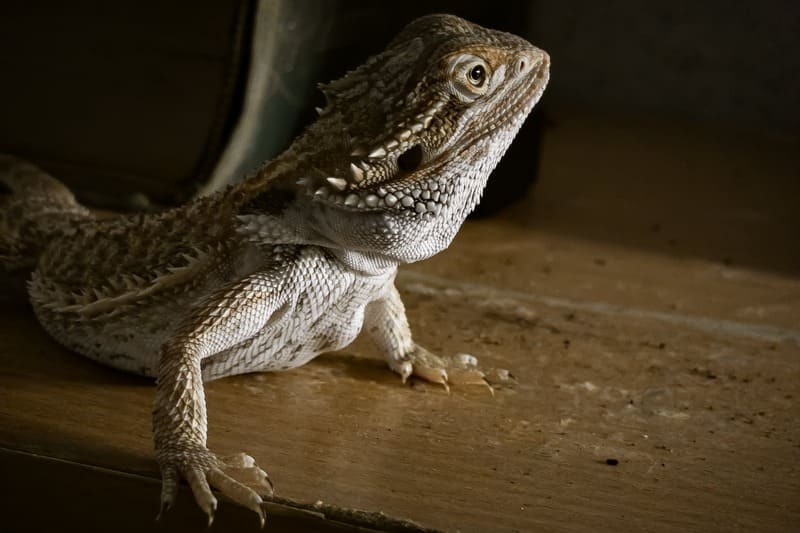Bearded dragons have become increasingly popular as pets over the years. These reptiles are known for their unique appearance, gentle temperament, and relatively manageable care requirements. But are bearded dragons good pets? To answer this question, we need to explore various aspects of their care and suitability as companion animals. In this comprehensive guide, we will discuss the characteristics of bearded dragons, their care needs, the advantages and disadvantages of keeping them as pets, and what it takes to be a responsible owner. By the end of this discussion, you will have a thorough understanding of whether a bearded dragon is the right pet for you.

Understanding Bearded Dragons
Before delving into the suitability of bearded dragons as pets, let’s start by understanding these fascinating reptiles.
Physical Characteristics
Bearded dragons are named for their distinctive “beard,” a pouch-like extension under their chin that can puff up and darken when they are stressed or feel threatened. They have a relatively flat body, a triangular-shaped head, and spiky scales along their back and sides, which gives them their unique appearance. Bearded dragons come in various color morphs, with some featuring vibrant patterns and colors.
Size
Adult bearded dragons typically reach a size of 18 to 24 inches (45 to 60 cm) in length, including their tail. Males tend to be slightly larger than females. Their manageable size is one reason they are popular as pets.
Lifespan
Bearded dragons have a relatively long lifespan compared to many other reptiles. When well-cared for, they can live for 10 to 15 years or even longer. Their longevity can make them a significant commitment for potential owners.
Temperament
One of the most appealing qualities of bearded dragons is their gentle and docile temperament. They are known for being relatively easy to handle and are not typically aggressive. While individual personalities may vary, most bearded dragons are calm and tolerate human interaction well.
Advantages of Keeping Bearded Dragons as Pets
Bearded dragons offer several advantages as pets, making them an appealing choice for many reptile enthusiasts. Here are some of the key benefits of having a bearded dragon as a pet:
1. Docile Nature
Bearded dragons are known for their calm and easygoing demeanor. They are generally tolerant of handling and often become quite sociable with their owners. This docile nature makes them suitable for first-time reptile owners and families.
2. Manageable Size
Their relatively small size compared to some other reptiles, like iguanas or large snakes, makes bearded dragons more manageable in terms of space and housing requirements.
3. Long Lifespan
The extended lifespan of bearded dragons allows for long-term companionship. Many owners appreciate the opportunity to bond with their pets over a decade or more.
4. Interesting Behavior
Bearded dragons display fascinating behaviors and characteristics, such as “arm-waving” (a submissive gesture), “head-bobbing” (a territorial or courtship display), and basking. Their unique behaviors can be entertaining to observe.
5. Low Maintenance
Compared to some other pets, bearded dragons are relatively low-maintenance. Their dietary needs are straightforward, and they don’t require as much attention as dogs or cats. Additionally, they are quiet animals, which can be a consideration for people living in close quarters or apartments.
6. Educational Value
Bearded dragons offer an opportunity for educational experiences, especially for children. Caring for these reptiles can teach responsibility and provide insights into biology and animal behavior.
7. Availability
Bearded dragons are readily available in the pet trade, making it relatively easy to find one if you’re interested in owning one as a pet.

Care Requirements for Bearded Dragons
While bearded dragons have their advantages as pets, it’s crucial to understand their care requirements. Providing the right environment and diet is essential to ensure their well-being. Here are some key aspects of caring for bearded dragons:
1. Housing
Bearded dragons need an appropriately sized enclosure. A tank or vivarium with a secure lid is ideal. The enclosure should have proper lighting, heating, and ventilation. Adult bearded dragons typically require at least a 40-gallon tank, while larger enclosures are preferred.
2. Lighting and Heating
Bearded dragons are ectothermic, meaning they rely on external sources of heat to regulate their body temperature. They require access to a basking spot with temperatures around 100-110 degrees Fahrenheit (37-43 degrees Celsius) during the day. Additionally, they need access to UVB lighting to help metabolize calcium and maintain bone health.
3. Diet
Bearded dragons are omnivores, meaning they consume both animal and plant matter. Their diet should include a variety of insects (e.g., crickets, roaches) and a selection of leafy greens and vegetables (e.g., collard greens, mustard greens, squash). Fruits can be offered occasionally but should not constitute a significant portion of their diet.
4. Hydration
Bearded dragons require access to water for hydration. While they often obtain moisture from their diet, it’s still a good idea to provide a shallow water dish that is cleaned and refilled regularly. Some bearded dragons may also drink from water droplets or while bathing.
5. Substrate
Choose an appropriate substrate for the enclosure. Options include reptile carpet, ceramic tile, or non-particulate substrates. Avoid loose substrates like sand, as they can pose a risk of impaction if ingested.
6. Handling
Bearded dragons are generally amenable to handling, but they still need to be treated gently and with care. Frequent, gentle handling can help them become more accustomed to human interaction.
7. Veterinary Care
Regular veterinary check-ups are essential to monitor your bearded dragon’s health and address any potential issues. Find a veterinarian with experience in reptile care.
8. Enrichment
Provide environmental enrichment for your bearded dragon. This can include items like branches, rocks, and hides to encourage physical activity and mental stimulation.
9. Socialization
Bearded dragons may enjoy interaction with their owners. While they don’t require as much socialization as dogs or cats, spending time with your bearded dragon can help strengthen the bond between you and your pet.

Disadvantages and Challenges of Keeping Bearded Dragons as Pets
While bearded dragons make wonderful pets for many individuals, there are some disadvantages and challenges to consider before bringing one into your home:
1. Long Lifespan
While the bearded dragon’s long lifespan can be an advantage, it’s also a commitment that should not be taken lightly. Potential owners should be prepared to care for their pet for a decade or more.
2. Specific Care Requirements
Bearded dragons have specific care requirements, including heating, lighting, and dietary needs. Their habitat must be carefully maintained to ensure their health. Neglecting these requirements can result in health issues or even death.
3. Cost
The initial setup cost for a bearded dragon, including the enclosure, heating, lighting, and accessories, can be relatively high. Additionally, ongoing expenses for food, maintenance, and veterinary care should be factored into the cost of ownership.
4. Space Requirements
Even though bearded dragons are smaller than some other reptiles, they still require a significant amount of space, especially as they grow. Owners need to provide an adequately sized enclosure that may take up considerable space in their home.
5. Long-Term Commitment
The extended lifespan of bearded dragons means owners must commit to caring for them for many years. Changes in lifestyle or living situations can impact the ability to provide proper care for the pet over time.
6. Potential Health Issues
Bearded dragons can suffer from various health issues, including metabolic bone disease, respiratory infections, and parasites. Owners must be prepared for potential health challenges and associated veterinary expenses.
7. Limited Interaction
While bearded dragons can be handled and socialized to some extent, they do not offer the same level of interaction and companionship as mammals. They are not typically affectionate or cuddly in the way that dogs and cats are.
Is a Bearded Dragon Right for You?
Whether a bearded dragon is the right pet for you depends on your lifestyle, living situation, and personal preferences. Here are some factors to consider when deciding if a bearded dragon is a suitable pet for you:
1. Commitment
Are you prepared for the long-term commitment of caring for a bearded dragon, which can live for over a decade? This commitment includes providing proper housing, nutrition, and veterinary care throughout their life.
2. Space
Do you have enough space in your home for an adequately sized enclosure, such as a 40-gallon tank or larger? Bearded dragons need room to move and bask comfortably.
3. Lifestyle
Consider your daily routine and how it aligns with the care requirements of a bearded dragon. Are you able to provide the necessary lighting, heating, and feeding on a consistent basis?
4. Budget
Can you afford the initial setup costs, ongoing expenses, and potential veterinary bills associated with owning a bearded dragon? It’s important to budget for the full cost of ownership.
5. Interaction
If you’re looking for a pet that offers a high level of interaction, companionship, or affection, a bearded dragon may not be the ideal choice. While they can be handled and socialized, their behavior is different from that of mammals.
6. Allergies
Some individuals may have allergies or sensitivities to reptiles or their environment. Consider any potential allergies or health concerns when deciding to bring a bearded dragon into your home.
7. Local Regulations
Check local regulations and restrictions on owning reptiles, as they may vary by region or country. Ensure that it is legal to keep a bearded dragon in your area.
8. Knowledge and Research
Bearded dragons have specific care requirements that should be understood before bringing one into your home. Conduct thorough research and be willing to learn about their needs and preferences.
Conclusion
Bearded dragons can make excellent pets for individuals and families who are prepared for their specific care requirements and can commit to their long lifespan. Their gentle temperament, interesting behavior, and relatively manageable size have endeared them to reptile enthusiasts around the world.
While they offer numerous advantages as pets, there are also challenges to consider, such as the need for an appropriate habitat, heating, and lighting, as well as the potential for health issues. It’s essential to weigh the pros and cons of keeping a bearded dragon as a pet to determine if they are the right choice for you.
Ultimately, the decision to bring a bearded dragon into your home should be made with careful consideration of your lifestyle, living situation, and willingness to provide responsible and attentive care for these remarkable reptiles.
